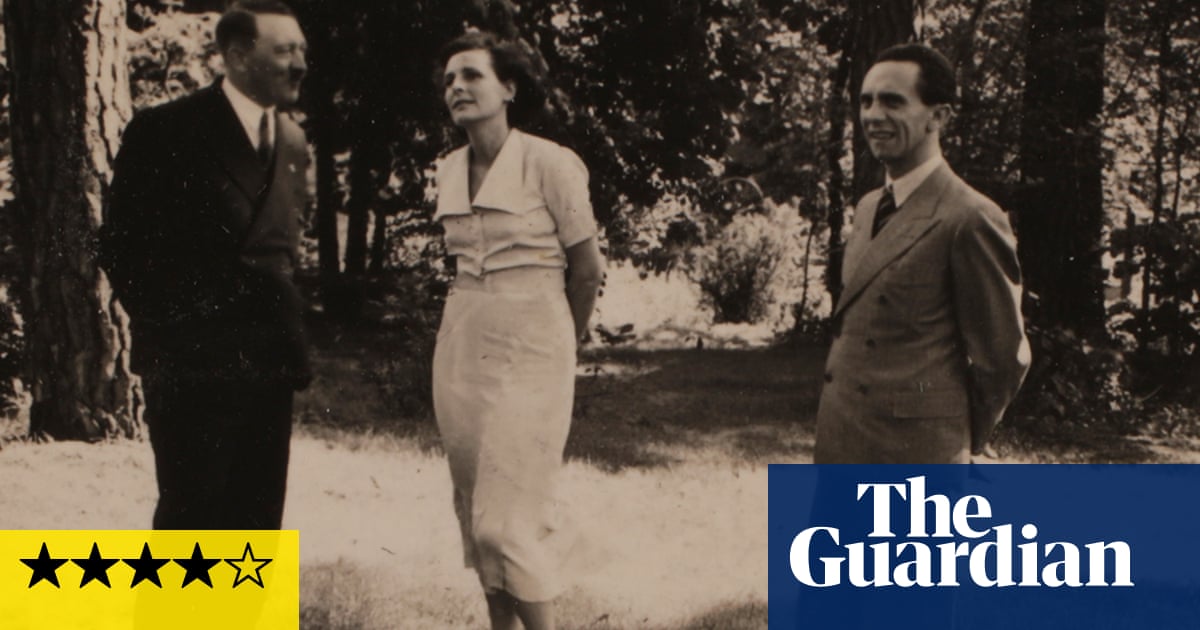Andres Veiel’s sombre documentary tells the gripping, incrementally nauseating story of Helene “Leni” Riefenstahl, the brilliant and pioneering German film-maker of the 20th century who isn’t getting her name on a Girls on Tops T-shirt any time soon.
Riefenstahl was a dancer and actor in prewar movies by Arnold Fanck and GW Pabst, whose performance in 1932 in The Blue Light, her own Aryan romantic fantasy as director-star, entranced the Führer and secured her two historic directing commissions: Triumph of the Will in 1935, a monumentally euphoric and grandiose account of the Nazi party congress in Nuremberg, and Olympia, about the 1936 Berlin Games, with whose undoubtedly stunning images and choreography Riefenstahl effectively invented the modern-day Olympics with its opening and closing ceremonies and media coverage.
Despite having no Nazi membership card, an important part of her postwar exoneration, Riefenstahl had the gruesome distinction of being the only important woman in the Nazi movement. The film gives a stomach-turning account of how Riefenstahl was invited by the Nazis to make an on-the-spot documentary in 1939 about the invasion of Poland and how she abandoned that project in the face of a grisly reality that couldn’t be stage-managed into some glassy-eyed propaganda hallucination. She opted instead to make Lowlands, a sugary operetta film for which she nevertheless needed dozens of Roma people as extras, including many children, taken from a nearby internment camp. The revelation of this fact undermined her later claims to have known nothing of the camps – as did the chilling allegation that during her abandoned Polish documentary she high-handedly demanded a group of Jews were removed from the background of one scene, which led to their being taken away and shot.
Her long life, after being released from house arrest in 1948, was taken up by brooding over her memoirs, giving interviews in which she was querulous and cantankerous about her warm personal relationship with Hitler, and conducting endless libel cases. This documentary shows she revised her memoirs endlessly, unsure if or how to minimise her personal contact with the Nazis, especially the sinister, besotted Joseph Goebbels; her fear of war guilt was at loggerheads with her unrepentant impulse to proclaim her own prestige. Then there was the solemn, preposterous, patronising photography project about the Nuba people of Sudan who could be relied upon not to question her about Hitler.
It is arguably a flaw of this film that there is no mention of Riefenstahl’s contemporary and sometime acting rival Marlene Dietrich, who got the lead role inJosef von Sternberg’s The Blue Angelahead of Riefenstahl and whose starry career thus took her more irresistibly into a Hollywood orbit and unfolded in parallel with Riefenstahl’s, but for the Allies. Fascinatingly though, we see how Riefenstahl gave interviewers her version of the Nuremberg defence for films like Triumph of the Will; that she was carrying out a commission (following orders, as you might say) and, in other circumstances, she might have done the same thing for Roosevelt or Stalin.
But she appears never to have made a relativist argument: that she was being pilloried in the way that Sergei Eisenstein might have been if history had been different. Perhaps it simply never occurred to her: she was focused only on her own importance, and important she undoubtedly was. She carried on until her death at 101, alternately grumpy and good-humoured, fearful and defiant, incarnating the secret psychological history of a whole generation of West Germans who didn’t see what they should apologise for.
Riefenstahl is in UK and Irish cinemas from 9 May and is screening at the German Film Festival across Australiauntil 28 May.
